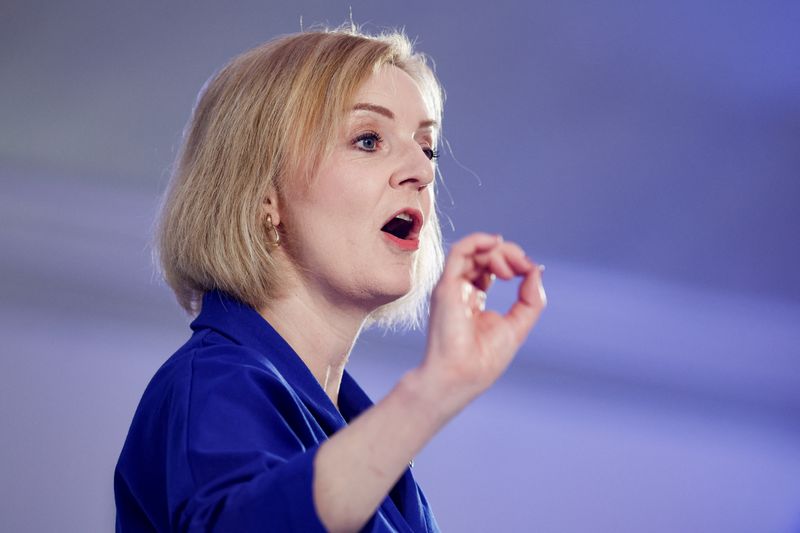By Geoffrey Smith
Investing.com -- The British pound is set for its lowest weekly close in over two years against the dollar, as the ruling Conservative Party prepares to elect a new leader to replace outgoing Prime Minister Boris Johnson.
By 11:30 ET (15:30 GMT), the pound was trading at $1.1579 against the dollar, enjoying a modest bounce in risk appetite in the wake of a U.S. employment report that took a little pressure off the Federal Reserve to continue raising interest rates aggressively.
Widening interest rate differentials have been one of the biggest reasons behind a miserable couple of months for the pound, with the Bank of England's more gradual steps so far failing to compensate for the downward pressure on the currency from an increasingly acute balance of payments problem caused by the energy crisis. The U.K. is a big net importer of energy, and the sharp rise in oil and gas prices this year has negatively affected its terms of trade, pushing the country to record current account deficit in the first quarter.
That current account deficit is likely to be complemented by a widening budget deficit if Foreign Secretary Liz Truss - the overwhelming favorite according to opinion polls - wins the membership's vote when the result is announced on Monday.
Truss has ruled out raising taxes if she becomes Prime Minister, and has promised to reverse a planned increase in National Insurance contributions which Johnson drafted to help tackle the rising costs of social care. At the same time, she has made numerous promises on spending - not least to help households with their energy bills over the coming winter.
Truss has also promised to raise defense spending to 3% of gross domestic product by 2030, the equivalent of 157 billion pounds in additional spending over the next eight years, compared with current planning assumptions, according to the Royal United Services Institute. In a research note, RUSI estimated that this would require a 5 percent increase in the standard and higher rates of income tax by the end of the decade, or an increase in the standard VAT rate from 20% to 25% if the government wanted to avoid higher borrowing.
The yield on the 10-year benchmark U.K. bond, or Gilt, rose another 7 basis points on such prospects Friday to a new eight-year high of 2.95%.
